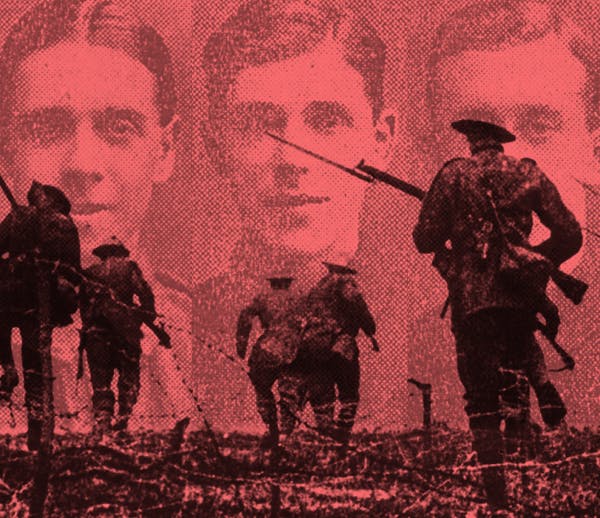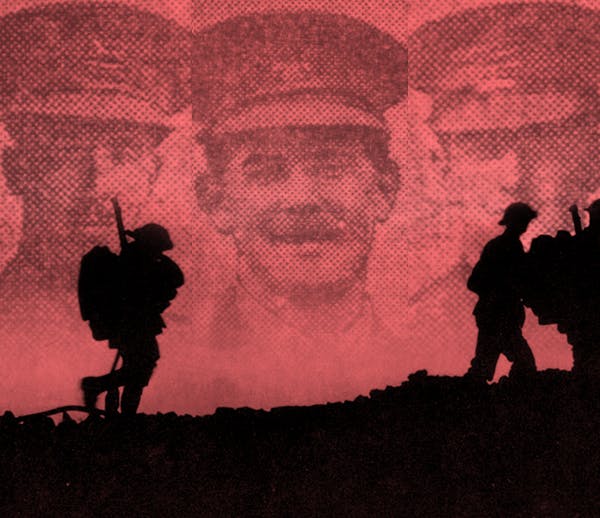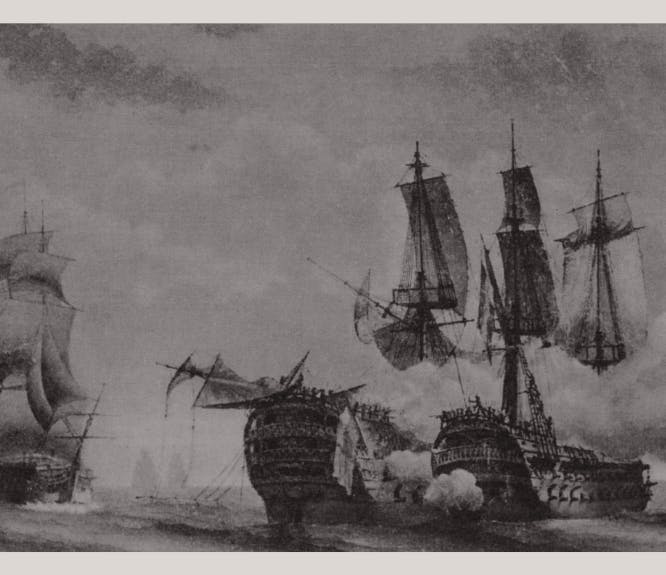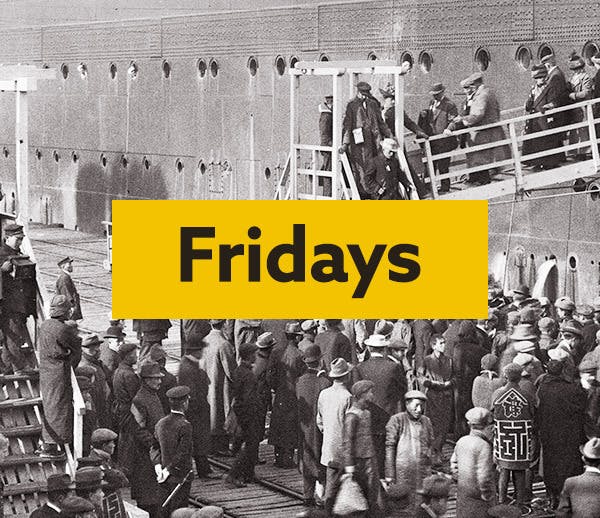What was life like on board a ship for our emigrant ancestors generations ago?
4-5 minute read
By Ellie Ayton | December 20, 2024
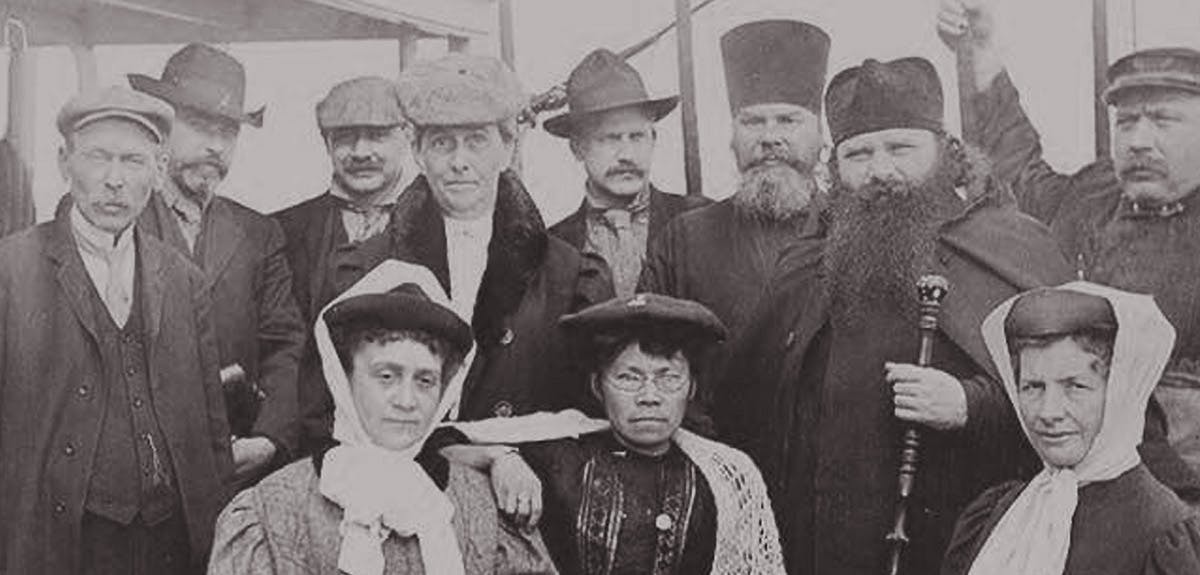
Do you have many immigrants on your family tree? Get to know them better with our deep dive into the lives they lived during their travels.
Picture it. Until now, you haven't travelled further than your local village. Now you face an arduous, weeks-long journey across the ocean into the unknown. Life in steerage is tough. You're sharing a cramped space with dozens of strangers and spend your nights awake and homesick, remembering the family you've left behind. As you approach Ellis Island, you wonder what awaits you on the other side. A new country brimming with opportunity or more of the same strife you are escaping? Is the grass really greener? Only time will tell.
This is what many of our emigrant ancestors endured as they upped sticks in search of a better life. They are so much more than names listed on passenger lists. Did they escape the Great Famine in Ireland by ship or travel with the Windrush generation from the Caribbean to Britain? Historic cultural moments like these played a part in our ancestors’ stories but let's delve deeper into life on board an emigrant ship to better understand how their experiences have shaped your family history.
Explore travel and migration family records
Tracing your family members' epic journeys starts with their names
Before the age of aircraft, maritime travel was the main way people moved around the world. Crossing an ocean for a new home was no mean feat. It could take weeks and was often dangerous.
Early migration
Sea travel during the 1600s was long and often unpleasant. When the Pilgrims sailed on the Mayflower in 1620, conditions aboard were uncomfortable and seasickness was rife, as the crossing took place during the Atlantic storm season. Passengers shared the space with livestock and other cargo. The sailing predated steam travel, so the journey took two months. How do you think you'd fare living in squalor for 60 days with just Bessie the cow for company?
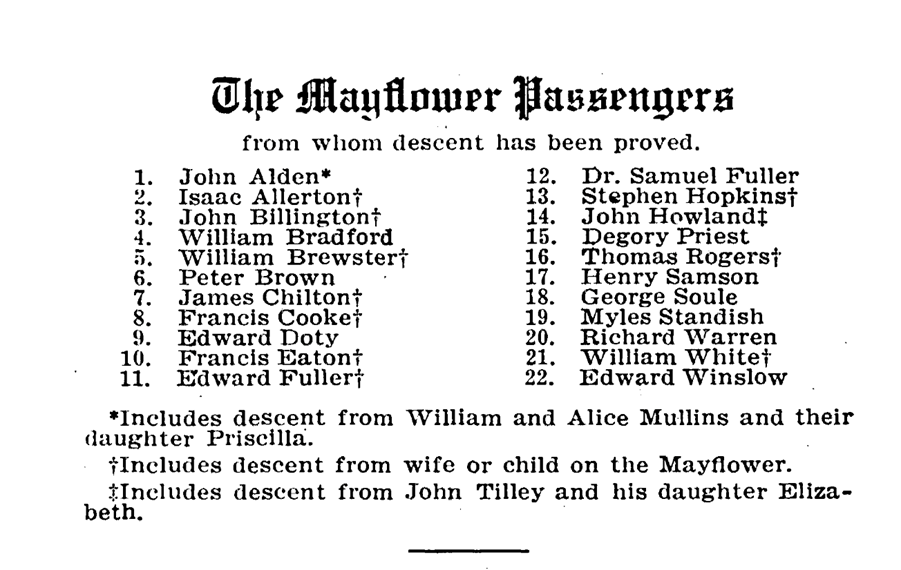
You can explore the Mayflower's passenger lists on Findmypast.
In the 18th century, it was common for ship owners to encourage as many migrants to come aboard as possible so they could maximize profits from a voyage. Passenger quarters were thronged and often unsanitary. It wasn’t until the 1803 Passenger Vessel Act that occupancy was limited to prevent overcrowding.
The steam revolution
The introduction of steam power in the 19th century meant more voyages across the vast oceans and more chances for our immigrant ancestors to make a better life for themselves in a new world. Most would have packed their belongings into a trunk (which went in the ship’s hold and likely wasn’t accessible for most of the trip) and a canvas bag with the essentials for the voyage.
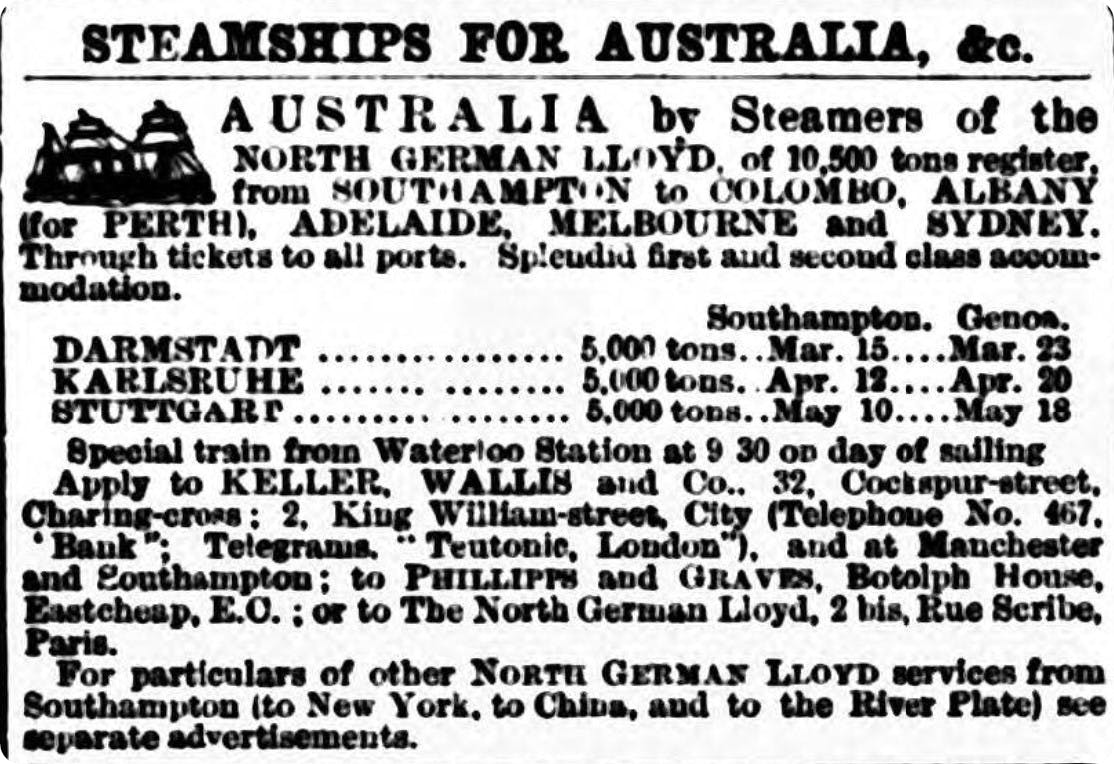
At this time, it typically took four months to sail from the British Isles to Australia and six weeks to the United States. That’s a long time to be at sea, although a faster clipper could make the trip in half the time. The time aboard often depended on the size of the ship, the number of sails, the time of year, the weather and the cargo.
While on board, passengers were organized based on the price paid for a ticket. Those in steerage class (the cheapest ticket, with accommodation in the lower deck of the ship, where cargo was stored) second and third class would cook their own food, and they were divided into messes. This meant that each mess would cook, eat and draw rations together. Steerage passengers would also have to clean their own berths.
Later, it was common for shipping companies to advertise cheaper passage aboard the regular mail steamers in various newspapers.
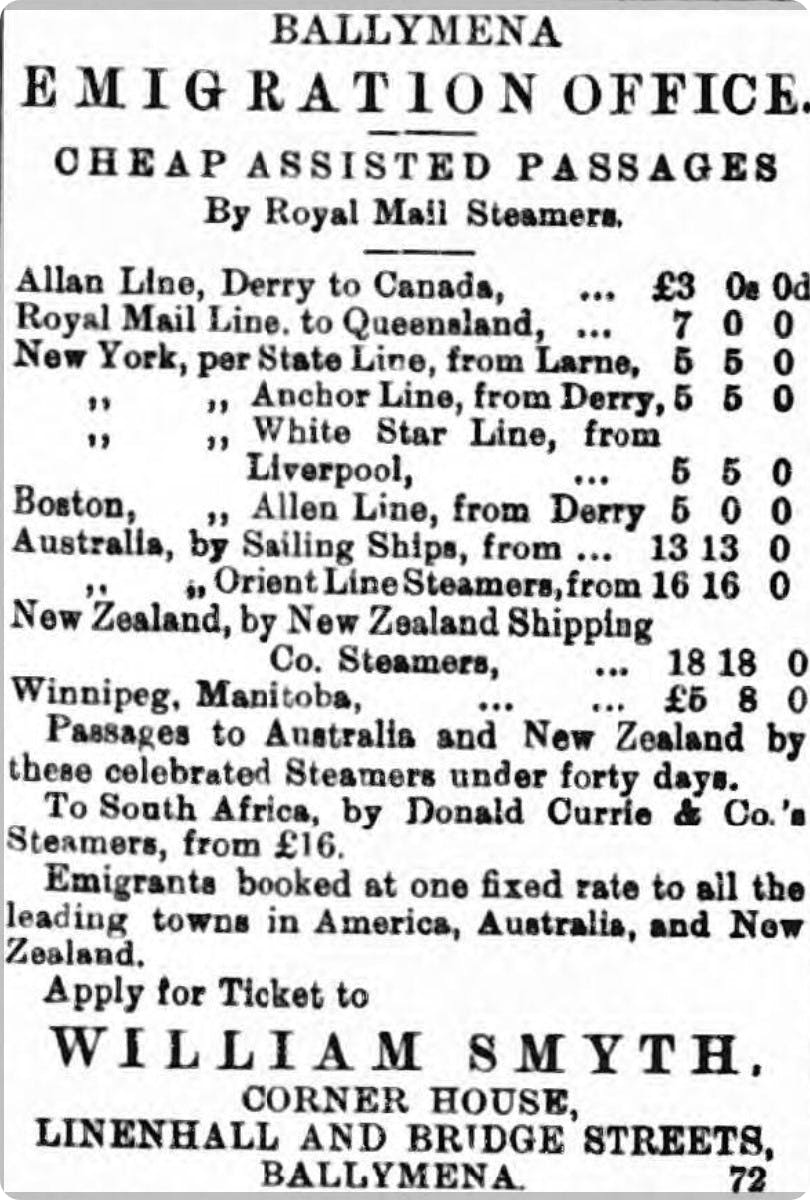
Ballymena Observer, May 3 1884.
If your ancestor was a single woman, she would sleep in quarters with other single women, kept away from any single men, and often supervised. As seen in a diary from 1850, it was considered important to provide;
"more efficient moral and religious supervision."
This particular diary was published, with the profits for;
"securing the services of Matrons to promote moral and religious welfare of emigrants."
The author, Reverend John Davies Mereweather, was traveling to Australia.
Day-to-day life on board
A typical day on board was regimented. Passengers were normally out of bed by 7 am, would have lunch at 1 pm, tea at 6 pm, and had to be back in bed for 8 pm. Where eligible, children would attend school during the voyage. Afternoons were normally dedicated to leisure time or catching up on mending or letter writing. Mereweather wrote in his diary;
"The men are in groups, some boxing with gloves; others fencing with foils... the women are sitting on the spars chatting, sowing or knitting."
Only around 1 in 10 passengers were wealthy enough to afford a cabin. Those in steerage suffered dark quarters and poor ventilation, and in the case of migration to North America, steerage passengers were often European and Chinese migrants.
On his trip to Australia, Mereweather commented;
"As the skuttles are blocked up by the berths and luggage, the whole compartment has a most lugubrious and dungeon-like aspect."
Further on into the journey he wrote;
"The emigrants complain sadly of the skuttles leaking. Some of their mattresses are saturated with water; consequently they rise in the morning with severe colds."
The Reverend also wrote about new life, death and disease aboard the ship, detailing the weather and any peculiarities seen during their sailing. These included jellyfish, the scenery, theft, and single emigrants causing trouble, of which he was most interested.
Next stop naturalization and census records
Once they reached their final destination, applying for naturalization was the logical next step in our distant relatives' bids to claim citizenship. The detail-rich petitions for naturalization that are left behind help us paint a clearer picture of what life was like as they settled into their new lives. Naturalization records feature important information like place of birth, last residence and date of arrival, key facts for connecting dots between your ancestors' new country and their place of origin. From there, you can trace their lives forward with census records in the nation they now called home.
What did your relatives experience during their journeys? Did they keep a diary or send letters home on arrival? Delve into our vast array of travel and migration records and share your family's travel tales with our like-minded community of genealogists.

